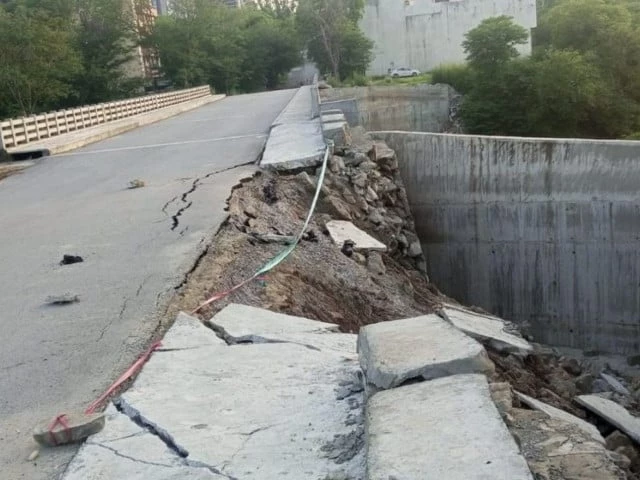A portion of the newly built Jinnah Square link road in Islamabad has collapsed following heavy rainfall, just months after its inauguration. The incident, which exposed a large crater and structural failure near the Recep Tayyip Erdogan Interchange, has triggered public outrage and raised serious concerns about construction quality and urban planning in the capital.
The link road was part of a high-speed development project aimed at easing traffic congestion and improving connectivity. Despite the project’s swift completion and its strategic importance, the early structural failure suggests insufficient drainage systems, poor material use, or rushed construction may be to blame.
Authorities have since begun emergency repair work, deploying heavy machinery to fill the collapsed section and prevent further damage. However, the collapse has once again highlighted Islamabad’s recurring challenge: infrastructure that fails to withstand seasonal monsoon rains.
Citizens have taken to social media, questioning the transparency of public contracts and the accountability of the agencies responsible. Many are demanding structural audits, third-party inspections, and strict penalties for substandard work.
This incident underscores the urgent need for climate-resilient infrastructure planning and stricter quality control in public development projects, especially in a city like Islamabad that frequently faces intense rainfall during monsoon seasons.



Comments (0)
No comments yet. Be the first to comment!
Leave a Comment